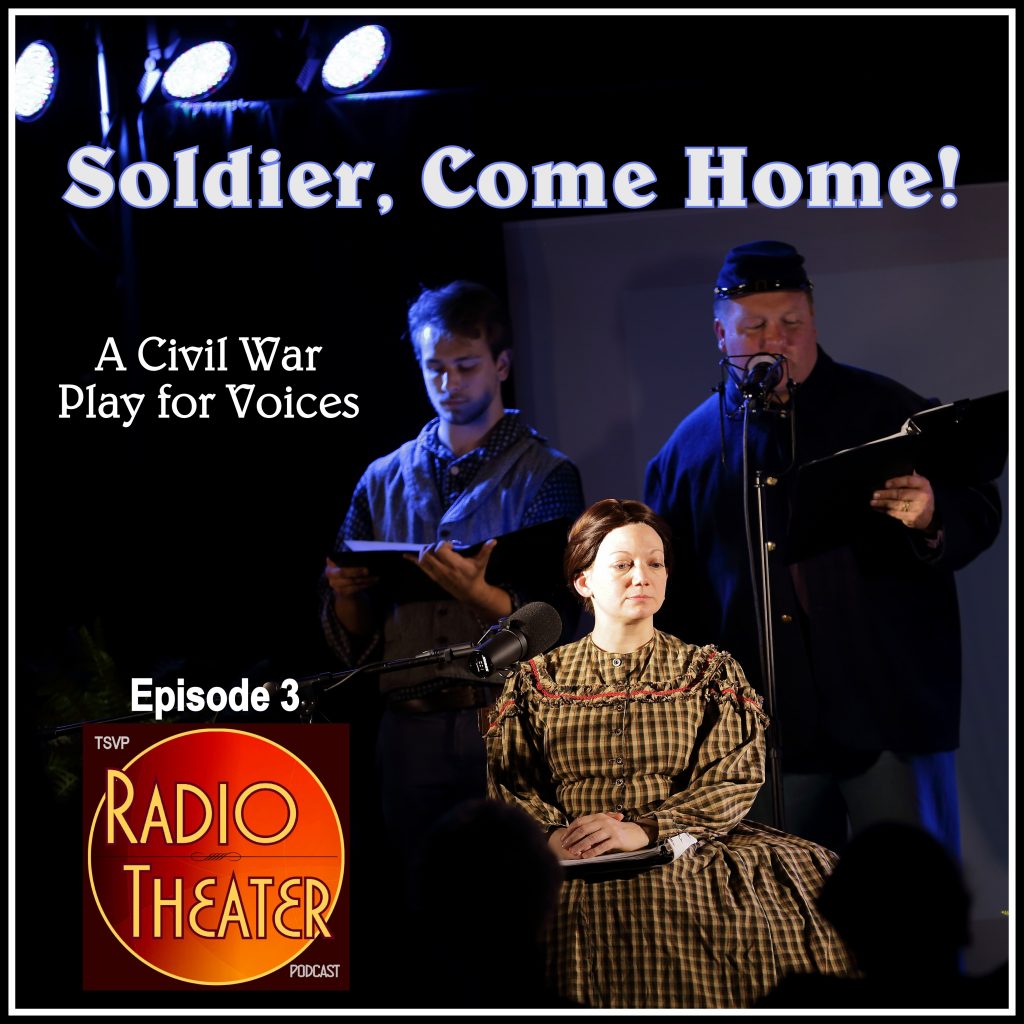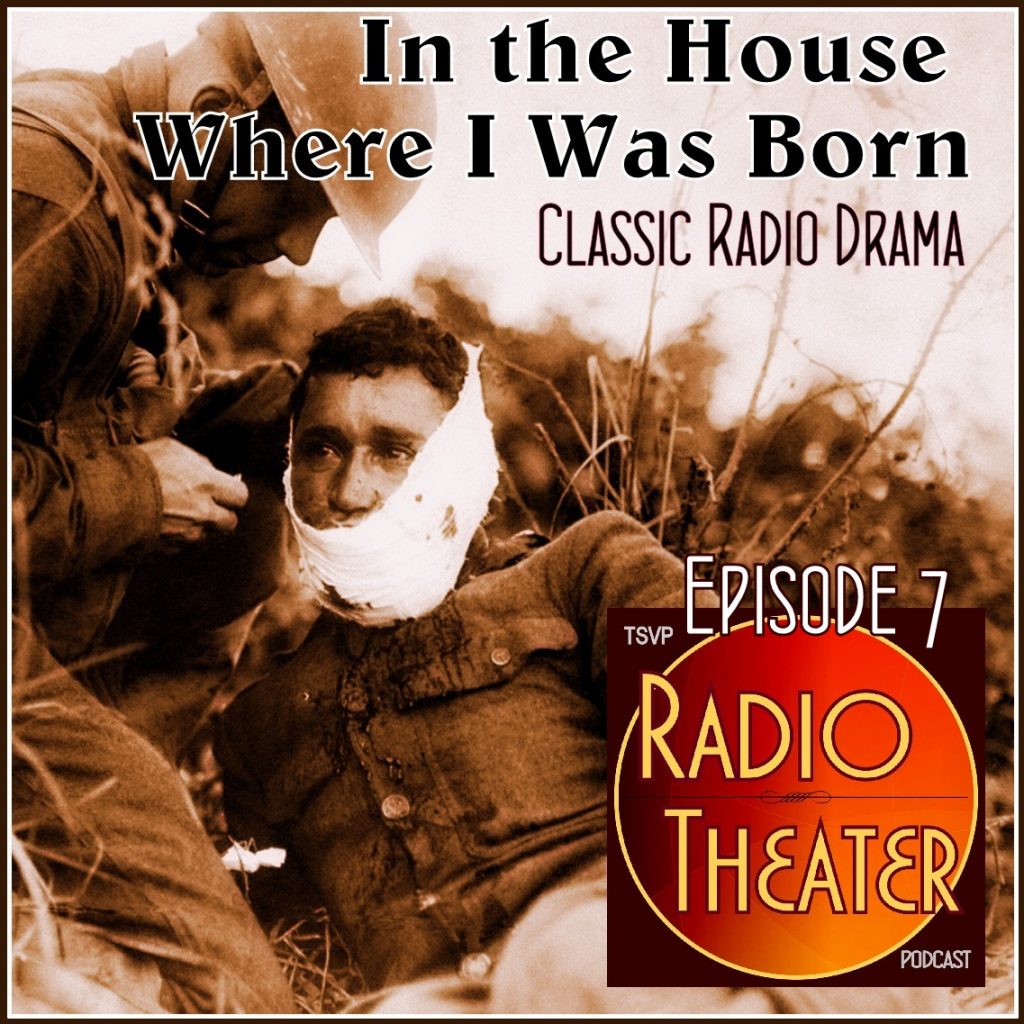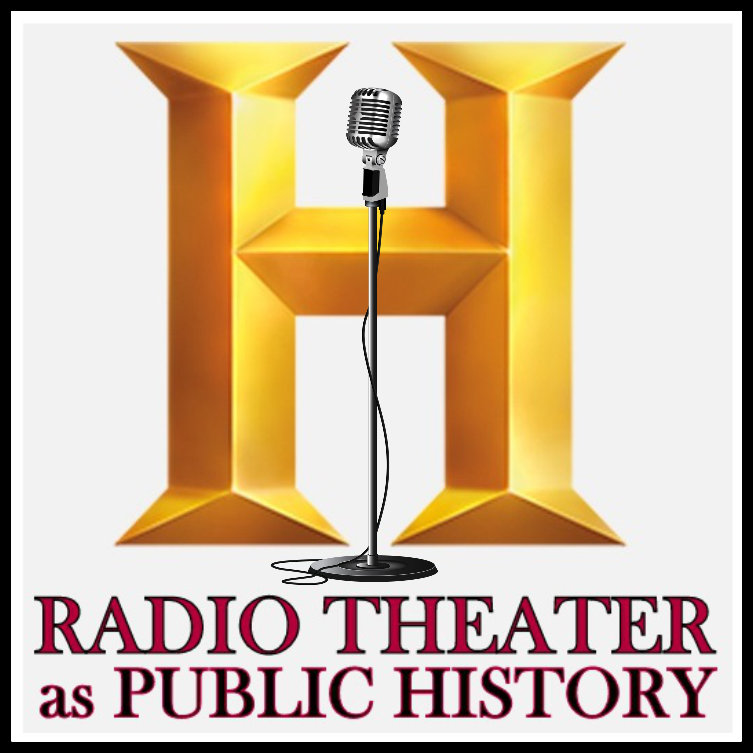Radio Theater as Public History
“If history were told in the form a stories, it would never be forgotten.” ~ Rudyard Kipling

Storytelling is one of humanity’s oldest and continuously practiced activities. In fact, anthropologists claim that there’s a tale still told around campfires in the Australian outback that dates back nearly 10,000 years. That is an extraordinary story to have lasted so long passing through thousands of generations. As such, stories inform, entertain, and educate us; we find this to be just as true from the earliest known cave drawings to the Bible to contemporary Hollywood films.
Literary scholars might say these tales–whether projected onto cave walls or onto the big silver screen–fit into just a handful of iconic plotlines: overcoming the monster, rags to riches, the quest, the long voyage and triumphant return, rebirth and renewal, the classic comedy, and the tragedy. Be they legends, lore, or folktales, our stories are but the recirculating voices of “the storytellers” handed down through the ages. We contend that historians are among these storytellers, who interpret and frame, present and pass down, tales of our shared humanity. But throughout history storytellers have warned us that a stories do not survive if they do not have an audience; in short, stories need someone to hear them. After all, a story not heard is, essentially, a story not told.
 PUBLIC HISTORY THROUGH STORYTELLING
PUBLIC HISTORY THROUGH STORYTELLING
It is from this understanding we realize that the art of storytelling and the practice of history converge upon an audience–the raison d’être. But inasmuch as stories need people to hear them, people need to hear stories. Author Lisa Cron puts it this way in Wired for Story: “Story, as it turns out, was crucial to our evolution — more so than opposable thumbs. Opposable thumbs let us hang on; story told us what to hang on to.”
For public historians, understanding this fundamental relationship between storytelling and humans gives insight into opening exciting opportunities to bridge the gap between the history inside the museum and the public standing just outside its doors. One way to invite people in is to inform, entertain, and educate them through historical storytelling.
As a tool for public historians at all levels, but particularly in the area of local history, we suggest here a particular kind of modern storytelling that profoundly strikes the imagination of audiences and inspires creative ways of thinking about stories: radio drama. If it is true that every picture tells a story, then every story evokes images in the mind. And it is this precise phenomenon that makes radio drama (often referred interchangeably with radio theater) so important and useful to public historians.
Since the earliest days of broadcast radio, the term “theater of the mind” has been used mean that radio engaged the listener’s imagination more actively than visual theatre.
Telling Stories with Sound: The Golden Age of Radio Drama
History Focused Radio Theater

The TSVP Radio Theater Podcast presents Soldier, Come Home!, a Civil War play for voices that brings to life the historical letters (1859 – 1865) of Frank W. Wicks’ great-grandparents, Philip and Mary Pringle, as well as other members from his Western Pennsylvania family.
The long-held family letters, discovered in a shoe box in the attic of the Wicks family home, give us a deeply personal and intimate look into the life of one American family. From the home front farm to the battlefields of Antietam, Chancellorsville, Gettysburg, and Appomattox, this deeply moving play for voices reveals the hardships so many families endured during America’s most costly war.

On episode 7 of the TSVP Radio Theater Podcast, we present a faithful reproduction of the original broadcast of In the House. Through the impressionistic narration of an “unknown soldier”—a representational every man—this radio drama pays homage to the common soldier and all who have died in military service. The show has been described as “a montage of memories—childhood homes, friends, family, war, death—that link the present with the past, the living with the dead, and form the cultural ties that bind communities together.” Others have said that the play “conquers time and space with an ease and flair.”
Written and directed by WWI veteran Wyllis Cooper for ABC Radio, the original 30-minute broadcast aired live on Memorial Day 1949. Our current production is a sound-stage adaptation that closely follows the original story and sound design. An added scene updates the story to include the Korean and Vietnam Wars, with special reference to Pittsburgh and actual lines from our oral history archive.
More Sources: Public History Radio Dramas
BBC Tales of Adventure, Espionage, and Classical Historical Dramas and Documentaries
BBC Sounds: Historical Dramas
More BBC Historical Dramas
Radio and the Public Use of History
Theatre: A Neglected Site of Public History?
National Council on Public History: Theater
Let’s talk about… History Podcasts
Communicating History: Podcasts as Public History
History Alive: The Podcast – a Salem-based theatre company dedicated to the production of new work based on stories from the past
WT Theatre to Open Season with Socially Distant Radio Drama
DO HISTORY TODAY
We’ve long advocated for creative public history. We’ve written before in Local History Matters about the need for local museums and historical societies to re-think how they do local history and to move toward the use of creative programming and contemporary activities such as oral history and photo-documentation programs that engage their communities in real time. One way to do this is to use radio theater to bring history to life in captivating, entertaining, and memorable ways.
OUR POSITION – HERE’S WHAT CAN BE DONE
At The Social Voice Project, we strongly encourage public historians, local museums, and historical societies to engage history through the use of radio drama. Here’s what can be done:
Add at least one radio drama or other type of history-related theater show to annual programming.
Contact and form working partnerships with local community theater groups or theater departments at local schools and universities.
Work with local writers and theatrical performers to turn local history tales into dramatic performances.
Use the world-wide reach and technical power of the internet to distribute and promote local history dramas.
Use local history podcasts to showcase and promote local history dramas.
PUBLIC HISTORY MATTERS
At The Social Voice Project, we celebrate history and people through our community oral history projects that give us a chance to look, listen, and record the voices and stories of our time. We encourage all local historical societies and museums to capture, preserve, and share their communities’ lived experiences, memories, customs, and values. Future generations are depending on it.
Contact TSVP to learn more about our commitment to public history and technical assistance in creating community oral history projects.
